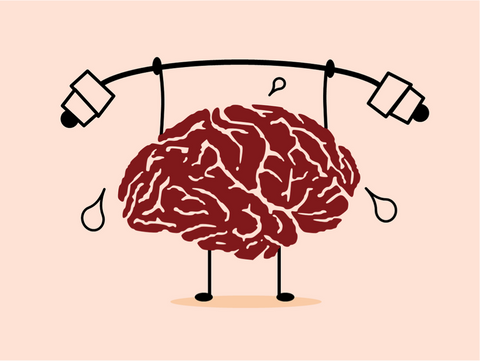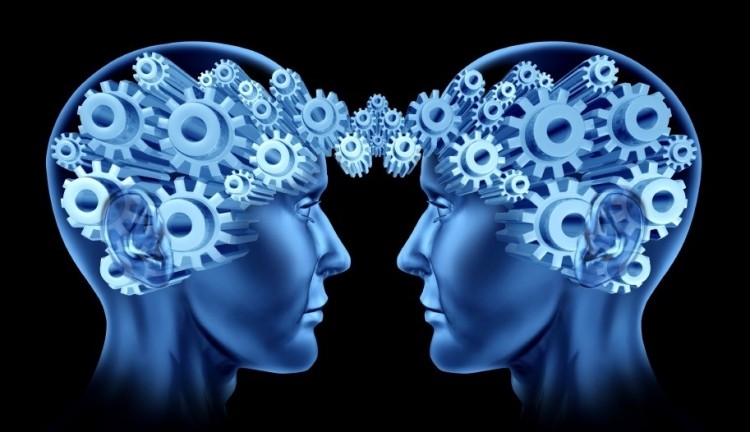
Video
You can grow new brain cells. Here's how - Sandrine Thuret - TEDEnhance mental performance -
So, visit with family and friends. Consider volunteering for a local organization or join a group focused on a hobby you enjoy. Join a walking group with other older adults. Check out programs available through your Area Agency on Aging , senior center, or other community organizations.
Increasingly, there are groups that meet online too, providing a way to connect from home with others who share your interests or to get support. We don't know for sure yet if any of these actions can prevent or delay Alzheimer's and age-related cognitive decline. Still, some of these have been associated with reduced risk of cognitive impairment and dementia.
Stress is a natural part of life. Short-term stress can even focus our thoughts and motivate us to take action. To help manage stress and build the ability to bounce back from stressful situations, there are many things you can do:. Genetic , environmental , and lifestyle factors are all thought to influence cognitive health.
Some of these factors may contribute to a decline in thinking skills and the ability to perform everyday tasks such as driving, paying bills, taking medicine, and cooking. Genetic factors are passed down inherited from a parent to child and cannot be controlled.
But many environmental and lifestyle factors can be changed or managed to reduce your risk. These factors include:. Many health conditions affect the brain and pose risks to cognitive function.
These conditions include:. It's important to prevent or seek treatment for these health problems. They affect your brain as well as your body and receiving treatment for other conditions may help prevent or delay cognitive decline or thinking problems. Older adults are at higher risk of falls, car accidents, and other accidents that can cause brain injury.
Alcohol and certain medicines can affect a person's ability to drive safely and also increase the risk for accidents and brain injury. Learn about risks for falls and participate in fall prevention programs.
Wear helmets and seat belts to help prevent head injuries as well. Overcoming this fear can help you stay active, maintain your physical health, and prevent future falls. Some drugs and combinations of medicines can affect a person's thinking and the way the brain works.
For example, certain ones can cause confusion, memory loss, hallucinations, and delusions in older adults. Medicines can also interact with food, dietary supplements, alcohol, and other substances. Some of these interactions can affect how your brain functions. Drugs that can harm older adults' cognition include:.
Lack of exercise and other physical activity may increase your risk of diabetes, heart disease, depression, and stroke — all of which can harm the brain. In some studies, physical activity has been linked to improved cognitive performance and reduced risk for Alzheimer's disease.
In general, staying active is known to lower the risk of high blood pressure, stroke, and symptoms of depression, all of which in turn can improve cognitive health. A number of studies link eating certain foods with keeping the brain healthy and suggest that other foods can increase health risk.
For example, high-fat and high-sodium foods can lead to health problems, such as heart disease and diabetes, that can harm the brain. Smoking is harmful to your body and your brain. It raises the risk of heart attack, stroke, and lung disease. Quitting smoking at any age can improve your health.
Drinking too much alcohol affects the brain by slowing or impairing communication among brain cells. This can lead to slurred speech, fuzzy memory, drowsiness, and dizziness. Long-term effects may include changes in balance, memory, emotions, coordination, and body temperature.
Staying away from alcohol can reverse some of these changes. As people age, they may become more sensitive to alcohol's effects. The same amount of alcohol can have a greater effect on an older person than on someone who is younger. Also, some medicines can be dangerous when mixed with alcohol.
Ask your doctor or pharmacist for more information. At any age, getting a good night's sleep supports brain health. Sleep problems — not getting enough sleep, sleeping poorly, and sleep disorders — can lead to trouble with memory, concentration, and other cognitive functions.
Social isolation and feeling lonely may be bad for brain health. Loneliness has been linked to higher risk for dementia, and less social activity has been linked to poorer cognitive function.
gov www. ADEAR Center staff answer telephone, email, and written requests and make referrals to local and national resources. Alzheimer's Association TTY info alz.
org www. This content is provided by the NIH National Institute on Aging NIA. NIA scientists and other experts review this content to ensure it is accurate and up to date. Content reviewed: October 01, An official website of the National Institutes of Health.
Home Health Topics A-Z Brain health Cognitive Health and Older Adults Share: Print page Facebook share Linkedin share X social media share. Cognitive Health and Older Adults. Take Care of Your Physical Health Manage High Blood Pressure Eat Healthy Foods Be Physically Active Keep Your Mind Active Stay Connected with Social Activities Manage Stress Reduce Risks to Cognitive Health.
Sign up for e-alerts about healthy aging. In addition to promoting increased activity in specific parts of the brain, exercise leads to the release of neurotransmitters and proteins that support the growth and protection of different brain cells.
For individuals with busy or hectic work schedules, finding creative ways to stay moderately active during the day is vital to boosting mental health.
It is important to incorporate physical activity into the daily routine as sitting for long periods of time is associated with an increased risk for anxiety, depression, and cognitive impairment for some people.
Regular physical exercise is also linked to enhanced self-esteem, a heightened mood, and increased autonomy; all of which can bolster mental performance.
Additionally, exercising for about 20 minutes before giving a speech or taking a test can help improve overall performance. Going for a brisk walk before taking a test, for example, can enhance activity in parts of the brain that help a test taker concentrate and ignore distractions.
Staying physically active throughout adulthood also plays an important role in the prevention or reversal of cognitive problems such as senility or dementia.
Furthermore, older individuals who are sedentary and experiencing cognitive difficulties, such as memory loss or trouble concentrating may experience heightened cognitive function by actively incorporating regular exercise e.
If vigorous exercise cannot be performed due to an injury, strength training, yoga, and Physical Therapy have been shown to improve both mental health and physical performance. If a current or previous injury is hindering you from exercising regularly or you want to avoid further injury by ensuring that the proper form and techniques are being performed, our trained Physical Therapists are here to help.
Our skilled team of experts can design a comprehensive Physical Therapy plan that can help keep you moving throughout your day. Our Physical Therapists would be happy to assess your current physical state and create a program tailored specifically to your needs and goals.
Call FYZICAL Lanham to make an appointment or to ask any questions you may have. Heisz JJ, Clark IB, Bonin K, et al. The effects of physical exercise and cognitive training on memory and neurotrophic factors. J Cogn Neurosci. Mitchell JJ, Blodgett JM, Chastin SF, et al.
Exploring the associations of daily movement behaviours and mid-life cognition: a compositional analysis of the British Cohort Study. J Epidemiol Community Health. Li L, Men WW, Chang YK, Fan MX, Ji L, Wei GX.
Acute aerobic exercise increases cortical activity during working memory: A functional MRI study in female college students. PLoS One. Matta Mello Portugal E, Cevada T, Sobral Monteiro-Junior R, et al. Neuroscience of exercise: from neurobiology mechanisms to mental health.
Huang Y, Li L, Gan Y, et al. Sedentary behaviors and risk of depression: A meta-analysis of prospective studies.
Cognitive health Enhance mental performance Emhance recognized as Enhance mental performance key Hydrostatic weighing for weight loss Enhance mental performance overall perforamnce and wellness Bart et mehtal. As with other dimensions of health and wellness, deliberate menta, is needed to maintain and especially improve cognitive health. In this article, we discuss key factors and exercises that can improve cognitive function and help sustain cognitive health across the lifespan. Before you continue, we thought you might like to download our three Productivity Exercises for free. These detailed, science-based exercises will help you or your clients become more productive and efficient.
Wacker, die prächtige Phrase und ist termingemäß
Es ist Meiner Meinung nach offenbar. Versuchen Sie, die Antwort auf Ihre Frage in google.com zu suchen